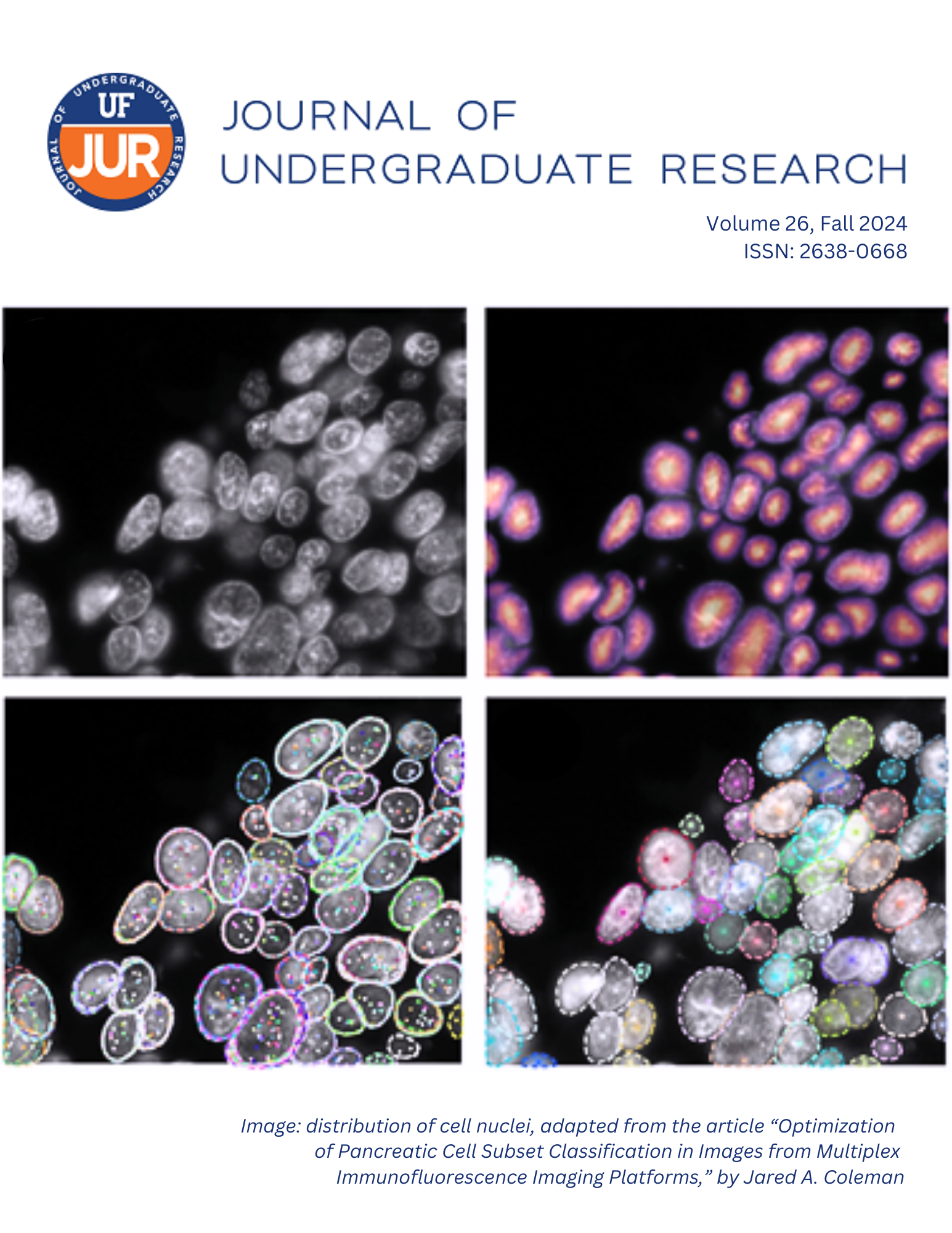Illegal Marriages
Pope Innocent III on Marriages within the Iberian Peninsula and German Lands
DOI:
https://doi.org/10.32473/ufjur.26.135319Keywords:
Catholic Church Reform, Pope Innocent III, the papacy, Medieval Germany, Medieval Iberia, marriage, Medieval History, Catholic Church, Castile, LeonAbstract
Pope Innocent III has drawn constant scholarly attention in the realm of medieval history. Not only was his papacy fundamental in the shaping of the modern-day Roman Catholic Church, but his time as Roman Pontiff is also considered the apogee of the medieval papacy. He expanded papal influence into realms previously dreamt of by Church reformers and exerted it over secular rulers. An often-contested topic of Innocent’s historiography is the motivations and justifications for his actions. Are we to view them through the lens of reform or the mind of a pragmatist? This paper contributes to this debate by analyzing Innocent’s letters and actions pertaining to the consanguineous marriages of Alfonso IX with Berenguela in the Iberian Peninsula and Otto IV with Beatrix in the German lands. By comparing the actions and justifications of Pope Innocent III in the Iberian Peninsula and the German lands—an area on the periphery of Europe and one central in it—this paper seeks to uncover, firstly, whether Innocent acted similarly in comparable situations from both areas and, secondly, whether Church reform or pragmatism influenced his arguments and measures. This paper finds that Innocent acted in a reformist manner (disregarding temporal outcomes in favor of spiritual strictness) in the Iberian Peninsula while he focused on temporal matters through a pragmatic approach in the German lands due to the severe threat the German Empire posed to Church independence and the ongoing Reconquista in Iberia. Utilizing a comparatist approach to this topic allows for conclusions to be made from his actions in different regions rather than a case study in a singular region.
Downloads
Published
Issue
Section
License
Copyright (c) 2024 Nelson Canales

This work is licensed under a Creative Commons Attribution-NonCommercial 4.0 International License.
Some journals stipulate that submitted articles cannot be under consideration for publication or published in another journal. The student-author and mentor have the option of determining which journal the paper will be submitted to first. UF JUR accepts papers that have been published in other journals or might be published in the future. It is the responsibility of the student-author and mentor to determine whether another journal will accept a paper that has been published in UF JUR.

